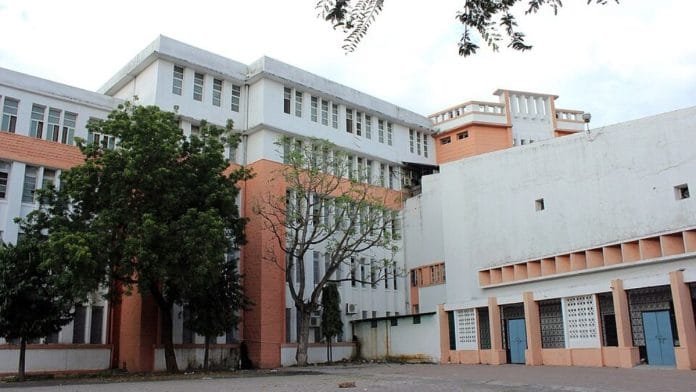Thank you dear subscribers, we are overwhelmed with your response.
Your Turn is a unique section from ThePrint featuring points of view from its subscribers. If you are a subscriber, have a point of view, please send it to us. If not, do subscribe here: https://theprint.in/subscribe/
India’s labour market is undergoing a significant shift: demand for skill-based, “blue-collar” work is rising faster than for traditional white-collar jobs, challenging long-held assumptions about education and career paths. While many Gen Z students continue to pursue higher education at home and abroad, economic realities and changing employer preferences are creating a growing gap between expectations and opportunities.
Rising Demand for Skilled Workers
The International Labour Organization’s 2024 India Employment Report notes strong hiring demand in sectors such as manufacturing, logistics, healthcare support, and construction. The National Skill Development Corporation (NSDC) projects a shortage of nearly 30 million skilled workers across key industries by 2030.
Vocational courses, apprenticeships, and certification programs often provide faster and higher returns on investment than multi-year degrees in certain fields. Entry-level technicians or certified logistics professionals can earn ₹20,000–₹25,000 per month immediately after training, whereas many college graduates enter the workforce at similar or lower levels after years of study.
The Gen Z Perspective
Indian Gen Z, born between 1997 and 2012, is increasingly pragmatic about career choices. Deloitte’s 2024 Global Gen Z Survey finds that flexibility, early earning potential, and skill acquisition are key priorities when choosing jobs. Yet, many parents continue to emphasize university degrees, especially overseas programs, believing they guarantee long-term security.
The reality of international study is sobering. UCAS and the US National Student Clearinghouse report declining enrollment among Indian students in full-time postgraduate programs, driven by rising tuition and living costs, visa restrictions, and uncertainties surrounding post-study work. Many students return to India with education loans that require immediate repayment, forcing them to seek employment rather than pursue advanced studies.
AI and Automation
Automation and AI are reshaping the employment landscape. McKinsey & Company estimates that nearly 30% of routine office tasks in India could be automated over the next decade. While this may reduce some white-collar entry-level roles, it simultaneously increases demand for hybrid skills: electricians and technicians comfortable with digital tools, logistics staff using AI-driven systems, and healthcare assistants managing electronic records. Many of these positions, classified as blue-collar, now require higher cognitive and technical skills.
Implications for Students, Parents, and Policymakers
If expectations remain unchanged, significant time and financial resources could be wasted on degrees that do not match near-term labour demand. Experts recommend:
- Parents and career counsellors should recognize vocational and apprenticeship pathways as legitimate, high-return career options.
- Students should weigh total cost, time-to-employment, and realistic income when selecting study paths.
- Policymakers should expand industry-aligned training programs, incentivize employer-led apprenticeships, and support short-term vocational courses with appropriate credit or loan structures.
Aspiration remains critical, but prestige alone should not dictate career choices. Embracing multiple, respected pathways to employment will help India’s youth graduate with skills, income, and opportunities — bridging the gap between education and economic realities.
References
- International Labour Organization. India Employment Report 2024. ILO, New Delhi, 2024.
- National Skill Development Corporation (NSDC). India Skills Report 2024. NSDC, 2024.
- The Times of India. “Entry-Level Skilled Jobs Pay More Than Graduates in India.” Economic Times, 2023.
- Deloitte. Global Gen Z Survey 2024: India Insights. Deloitte India, 2024.
- UCAS. UK Higher Education Enrolment Report 2023. UCAS, 2023.
- National Student Clearinghouse Research Center. US Higher Education Enrolment Trends 2023–24. NSC, 2024.
- McKinsey & Company. The Future of Work in India: Automation and Skills. McKinsey, 2023.
- World Economic Forum. Future of Jobs Report 2023. WEF, 2023.
These pieces are being published as they have been received – they have not been edited/fact-checked by ThePrint.


